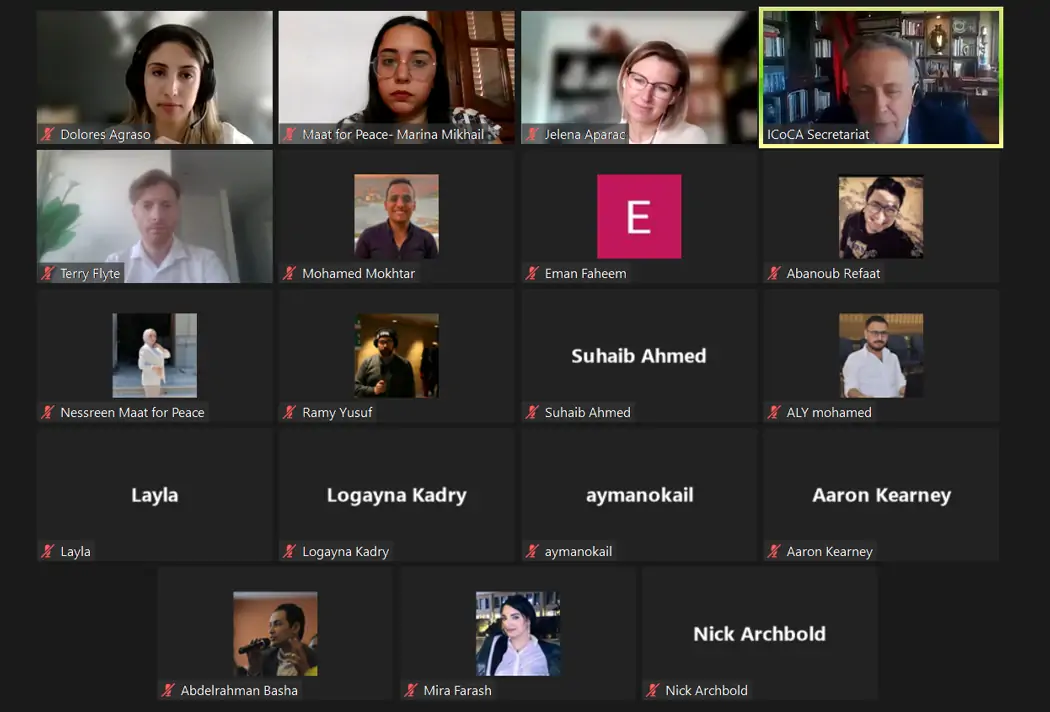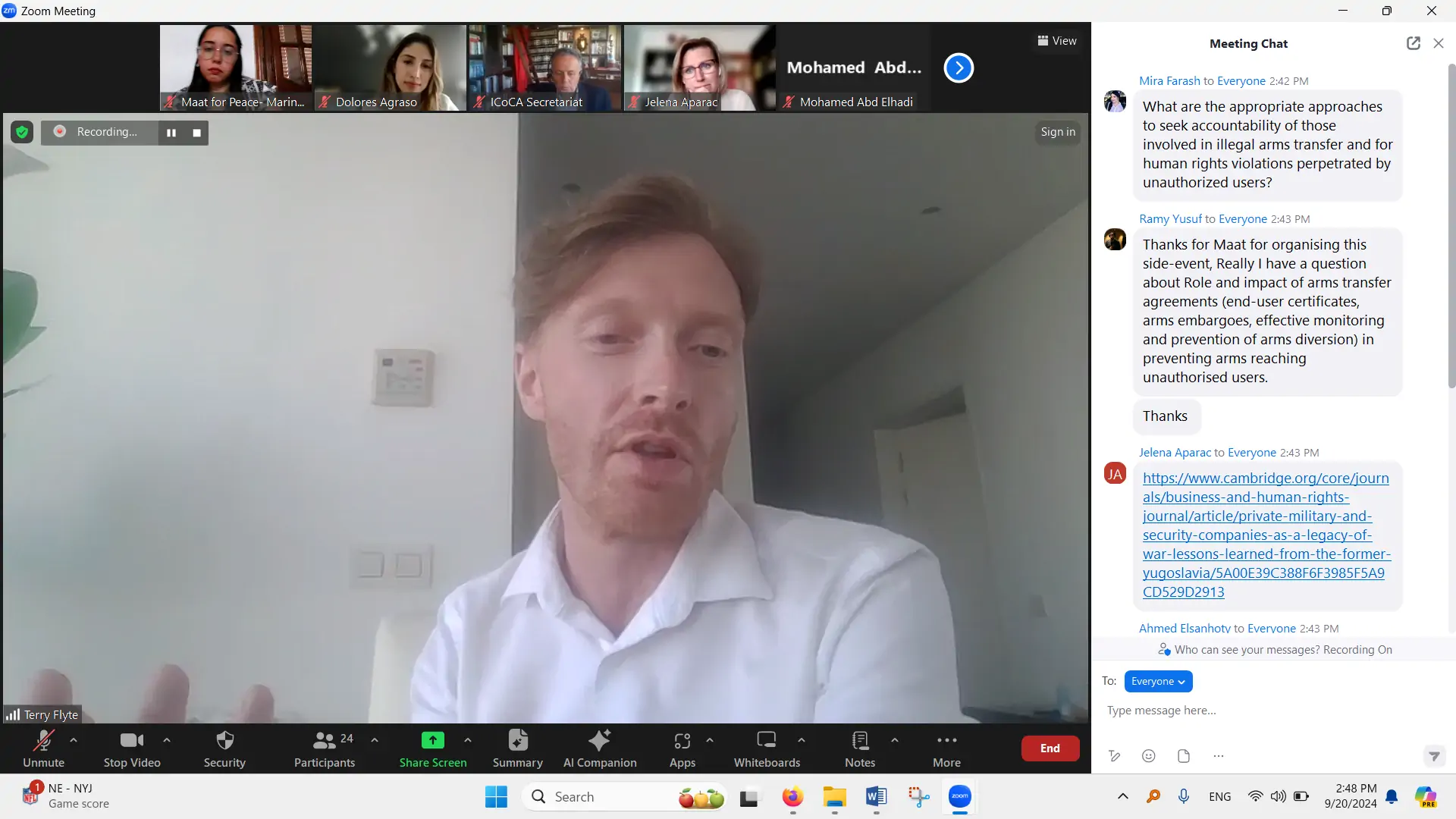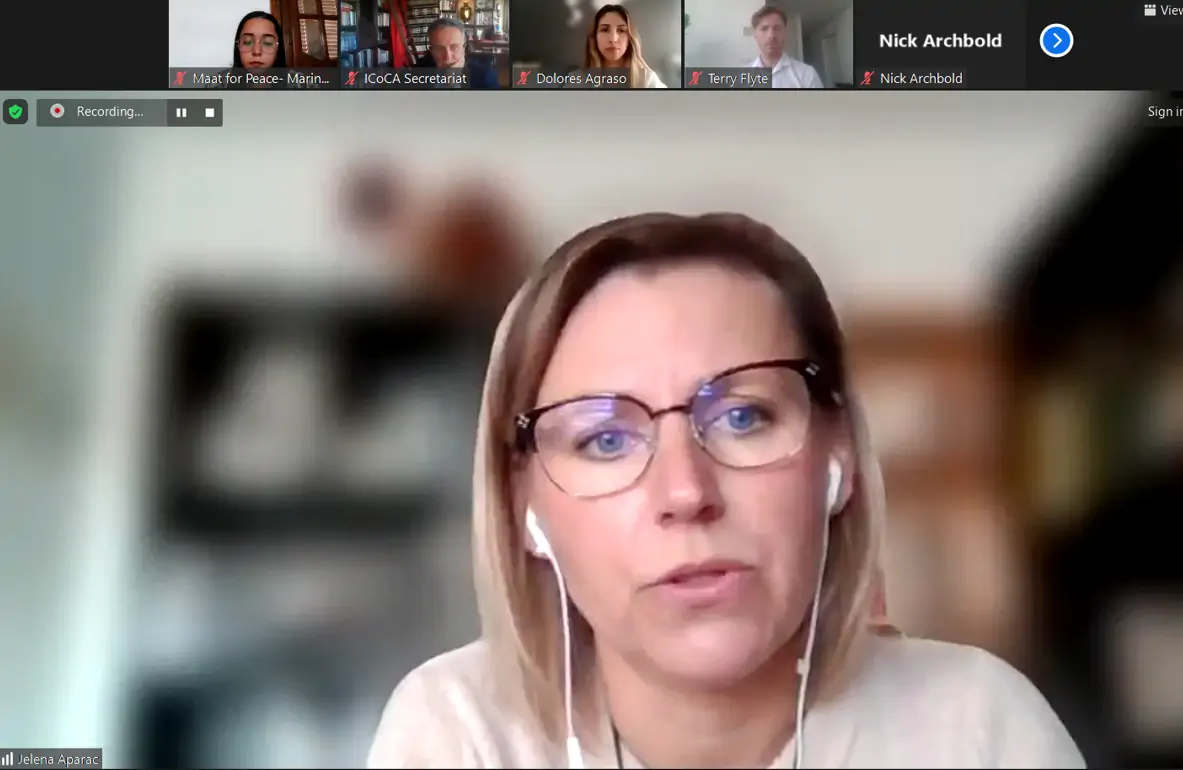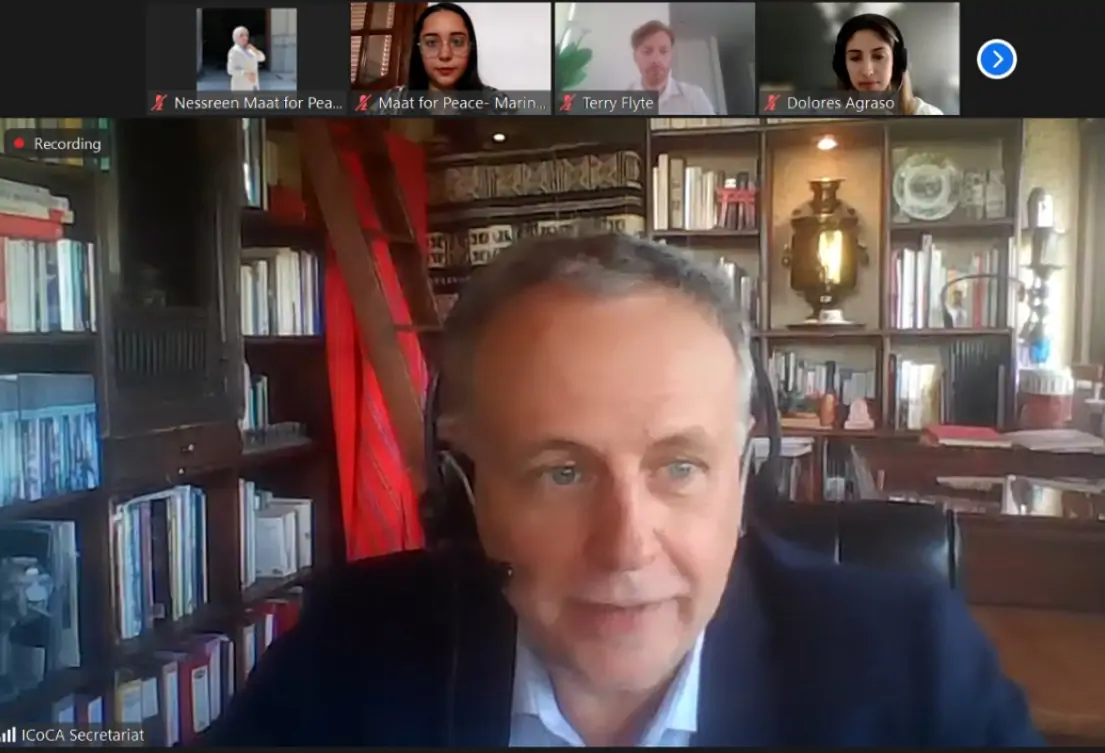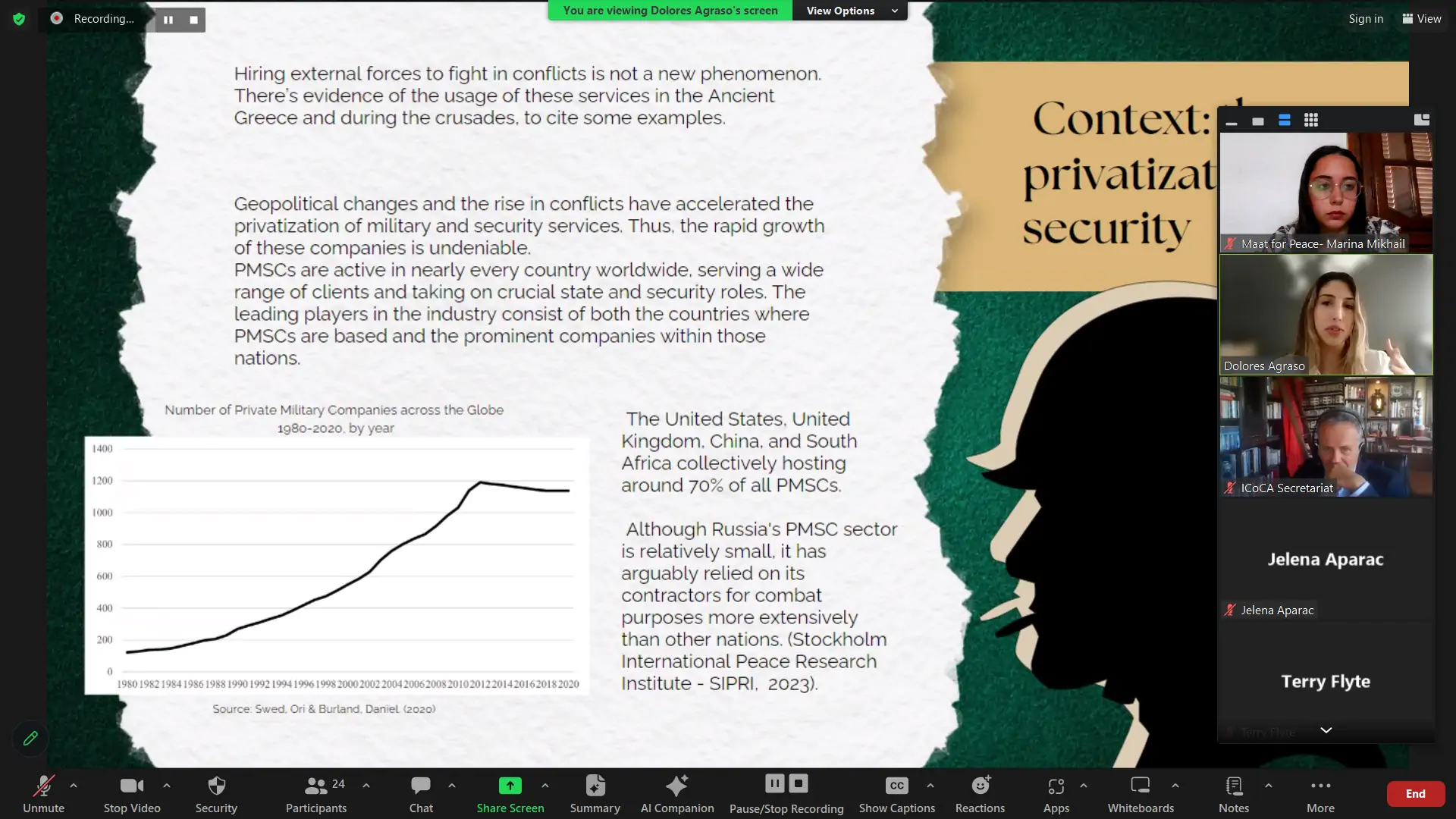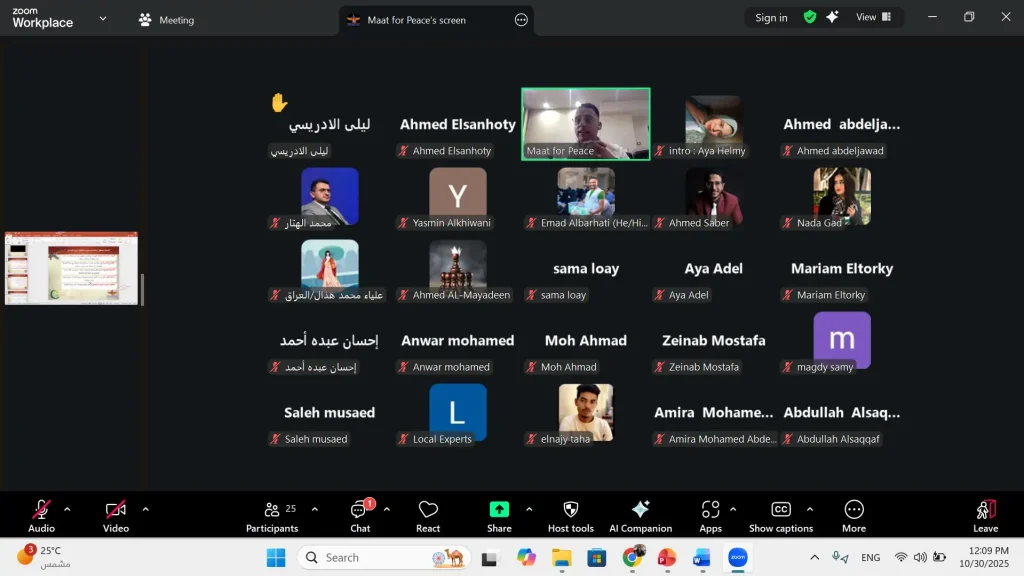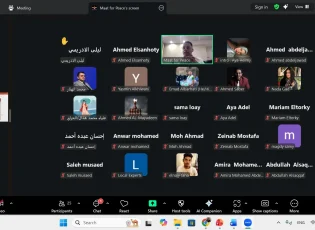On the 20th of September 2024, Maat for Peace, Development and Human Rights held a side event on the sidelines of the 57th session of the Human Rights Council entitled "The involvement of private military and security companies and mercenaries in providing support to the parties in conflict". This event was attended by a number of legal and human rights experts to discuss the role played by these companies in conflicts through direct participation in combat or providing technical support and military training to parties to the conflict, and the impact of this on the escalation of violations of human rights and international humanitarian law, as well as evasion of international responsibility. The event featured as keynote speakers Vincent Bernard, Senior Policy Advisor at ICOCA, Dr. Jelena Aparac, former Chair of the UN Working Group on the Use of Mercenaries, Terry Flyte, Program Director at Legal Action Worldwide, Dolores Agraso, Master's degree holder in Security, Peace and International Conflict, and Marina Sabri, Director of the International HR Mechanisms Unit at Maat.
In this context, Marina Sabri, Director of the International Human Rights Mechanisms Unit at Maat, said that PMSCs play a crucial role in the proliferation and misuse of weapons by providing brokerage services, facilitating the transfer of weapons, and acting as intermediaries between suppliers and parties to the conflict. Brokers work with vendors to manage the entire transaction, which may sometimes involve direct transfer of weapons. She added that among the most active participants in arms transfers are brokers and private military companies from Russia, the United States, the United Kingdom, and Israel, in addition to the United Arab Emirates in recent conflicts in Africa.
For his part, Vincent Bernard, Senior Policy Advisor at International Code of Conduct for Security Providers Association, stressed that states should only contract with companies that respect human rights and ensure that regulations are in place to prevent their citizens from becoming mercenaries, especially in post-conflict situations. He also stressed the need for specific tools to be applied to companies, as their operations follow a different logic than government agencies. He pointed out the importance of continuous dialogue with companies and encouraging more states to join efforts to regulate private security. He also highlighted the need to address the exploitation of migrant workers, who may end up working for military actors in conflict zones, believing they have been recruited for other roles. He stressed the need to engage civil society to resolve this issue.
Dr. Jelena Abarac, former Chair of the UN Working Group on the Use of Mercenaries, called on States to investigate and prosecute human rights violations committed by these companies. She pointed to the urgent need for mutual legal assistance given the transnational nature of these non-state actors, and called for the adoption of legally binding international instruments, the implementation of appropriate domestic legal frameworks, and political dialogues to understand the root causes of the involvement of mercenaries and private military companies and their inclusion in international sanctions regimes.
Dolores Agraso, who holds a master’s degree in international security, peace and conflict, added that the United States and the United Kingdom host approximately 70% of the world’s private military and security companies. She noted that many of these companies fail to comply with international law and have access to advanced technologies and weapons, which poses a serious threat. She also explained that reports reveal the massive human rights violations committed by the Wagner Group in Africa, where these companies promote the interests of certain states, fueling conflicts.
Finally, Terry Flyte, the Programme Manager at Legal Action Worldwide (LAW), stressed that states are unlikely to take action against human rights violations committed by these private groups. He therefore stressed the role of civil society in documenting violations and using them as evidence, advocating to pressure states to assume their responsibility, and called for continued advocacy for reform and accountability.
Maat called on the states involved to abide by their international obligations and stop transferring weapons to non-state parties, and called on the Human Rights Council to accelerate the adoption of a binding legal instrument that establishes an international regulatory framework for regulating, monitoring and supervising the activities of private military and security companies, and urged companies to adopt and implement internal codes of conduct that prohibit any collaboration with mercenaries or private military companies involved in human rights abuses. Companies were also urged to amend internal codes to align with international standards, such as those set by the ILO and UN conventions, to ensure accountability across the organization and its partners.

shortlink: https://maatpeace.org/en/?p=43192


